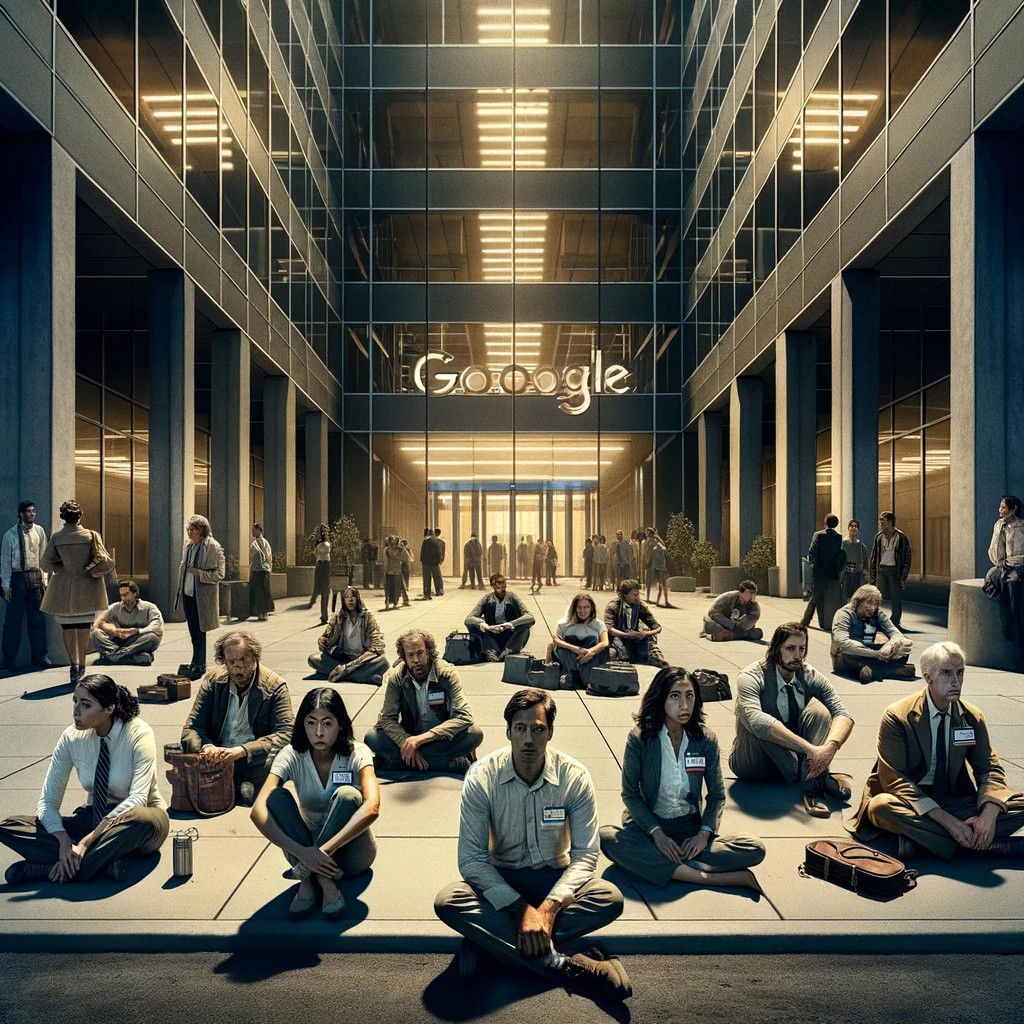In a strategic move towards maximizing the potential of artificial intelligence, Google has announced the elimination of “a few hundred” positions within its global ad team. This decision comes as part of a broader initiative to integrate AI into its operations for increased efficiency and creativity. Specifically targeting the “large customer” sales team, Google aims to streamline its efforts in providing enhanced support to small and medium-sized businesses engaging in advertising on the Google platform.
While the company did not explicitly mention generative AI, a disruptive force in multiple industries, its recent foray into AI tools for retailers suggests a broader commitment to harnessing the power of artificial intelligence.
The AI restructuring
Google’s decision to cut positions within its global ad team is grounded in the vision of leveraging artificial intelligence to drive efficiency and creativity in advertising. The primary focus of these job cuts is on the “large customer” sales team, indicating a shift in priorities towards better support for small and medium-sized businesses utilizing Google’s advertising platform. The move aligns with Google’s anticipation of expanding its small business ad teams, a development that is expected to prompt increased hiring throughout the year.
Notably, the company remained silent on the explicit incorporation of generative AI in this restructuring. However, it is essential to recognize the broader industry trend. Last week, Google’s cloud computing unit unveiled a set of new AI tools designed to assist retailers in personalizing online shopping experiences, modernizing operations, and enhancing in-store technology. Research highlighted by Google indicated that approximately 80 percent of U.S. retailers view the adoption of generative AI as urgent for their operations.
According to Google Cloud strategic industries vice president Carrie Tharp, generative AI has rapidly evolved into one of the fastest-moving capabilities in technology, becoming a critical component of many retailers’ agendas within a year. The newly introduced AI tools empower retailers to seamlessly integrate virtual agents into websites or mobile apps, providing personalized assistance and recommendations to shoppers. Also, Google AI is deployed in analyzing product images, generating optimized product descriptions, and enhancing discoverability in online searches.
It is worth noting that this move follows a significant downsizing by Google about a year ago when approximately 12,000 employees, constituting around six percent of its workforce, were laid off. The company justified the cuts by citing economic challenges such as inflation and rising interest rates. Since then, Google has redirected its efforts and investments towards the burgeoning field of generative AI.
The aftermath and future implications of ad team job cuts at Google
As Google adapts to the ever-evolving landscape of technology, the repercussions of this ad team restructuring are poised to influence the digital advertising sector significantly. The emphasis on utilizing AI to support small and medium-sized businesses suggests a strategic realignment of Google’s priorities to cater to a broader spectrum of advertisers. While the specifics of how generative AI will be integrated remain veiled, the unveiling of AI tools for retailers indicates a broader industry acknowledgment of AI’s transformative potential.
The generative AI trend has rapidly gained traction, not only as a buzzword but as a tangible force reshaping operations across diverse sectors. Google’s commitment to investing heavily in generative AI reflects a concerted effort to stay at the forefront of technological advancements. The company’s strategic industries vice president’s assertion about generative AI’s swift rise reinforces the notion that the capabilities of AI are evolving at an unprecedented pace.
Google’s restructuring of its ad team, coupled with its investments in generative AI, marks a significant milestone in the company’s journey towards technological innovation. As the tech giant navigates these changes, the industry watches closely to discern the impact on digital advertising dynamics and the broader implications for businesses engaging with Google’s platform. The question that lingers is how this integration of AI will redefine the landscape of online advertising and whether other tech behemoths will follow suit in embracing the transformative potential of generative AI.
A Step-By-Step System To Launching Your Web3 Career and Landing High-Paying Crypto Jobs in 90 Days.
